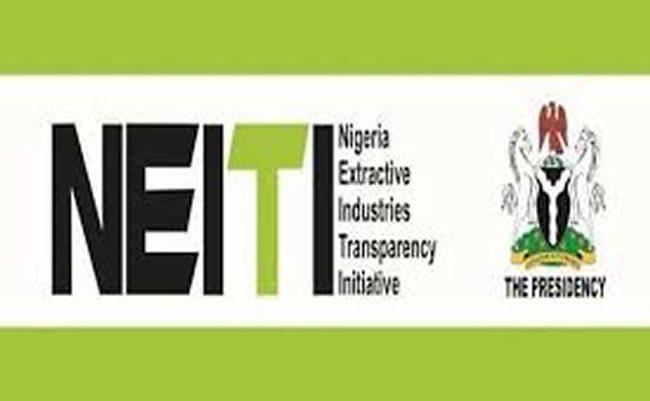The Nigeria Extractive Industries Transparency Initiative has issued a policy-backed caution on what it describes as a “silent fiscal emergency” quietly undermining the economic stability of Nigeria’s states.
The agency on Sunday also raised an alarm, warning that rising debt servicing obligations are squeezing states’ capacity to provide essential services, invest in local infrastructure, and implement poverty reduction programmes. NEITI’s Director of Communication and Stakeholder Management, Obiageli Onuorah, disclosed this in a statement issued in Abuja.
This alert follows the release of NEITI’s latest Policy Brief, “Beyond Federal Allocations: The Cost of Borrowings and Debt Servicing at the State Level in Nigeria,” in Abuja.
The statement read, “Fresh and evidence-based insights by NEITI have revealed how debt servicing obligations are constraining states’ capacity to fund essential services, local infrastructure, and poverty reduction initiatives.”
NEITI explained that the decision to undertake this research is rooted in its statutory mandate under the NEITI Act 2007 and in line with global EITI Standards, which require disclosures on revenue allocations and subnational transfers. States in Nigeria receive substantial monthly allocations from the Federation Account, much of it derived from extractive revenues.
However, when between 10 per cent and 30 per cent of these allocations are deducted at source for debt servicing, the fiscal space for grassroots infrastructure, social services, and poverty alleviation is severely diminished. By shedding light on the scale and implications of these deductions, NEITI is providing citizens, policymakers, and development partners with reliable evidence to drive fiscal discipline and prudent debt management.
The organisation further noted that the study addresses a critical governance gap by complementing national debt management reforms with robust subnational fiscal transparency. High and unsustainable debt servicing obligations pose risks to state-level stability and undermine the developmental impact of extractive revenues.
Through this disclosure, NEITI empowers citizens, civil society, and the media to hold state governments accountable for their borrowing decisions, while providing a credible, evidence-based platform for dialogue on debt sustainability thresholds, transparent loan agreements, and responsible economic governance.
The Policy Brief reveals that between 10 per cent and 30 per cent of monthly FAAC allocations in many states are directly deducted at source for debt servicing, leaving less room for grassroots development investment. A breakdown of the report revealed that Kaduna State recorded the highest 2024 deduction ratio at 32.06 per cent, translating to N51.2bn deducted from N159.7bn in gross allocations.
Ogun State followed with 27 per cent (N33bn from N123bn), Bauchi with 26 per cent (N37bn from N142bn), and Cross River with 24 per cent (N28bn from N119bn). From the NEITI Policy Brief, these high-debt states contrast sharply with low-debt performers such as Borno with only 2.63 per cent debt reduction obligations, Jigawa 2.74 per cent, Benue -3.58 per cent, and Nasarawa -3.82 per cent, debt burden exposure.
Other States with low debt burden commitments include Kebbi, 4.06 per cent, Bayelsa, -4.46 per cent, and Anambra, 4.54 per cent, where prudent borrowing and efficient fiscal management have preserved over 95 per cent of gross allocations for direct development spending.
The NEITI Policy Brief also examined positive debt-to-GDP Management implications and the lessons that subnational governments must consider. NEITI notes that these low-debt states provide practical models for maintaining a healthy debt-to-GDP profile while still leveraging borrowing for development where necessary.
This balance between debt and revenue is critical for preserving fiscal sovereignty and avoiding dependency on future bailouts. The policy brief document also flags contractual obligations, notably in Ogun (N6bn) and Ondo (N7.73bn), tied to public-private partnerships and infrastructure projects, warning that opaque contract terms and excessive deductions can undermine future fiscal space.
Conversely, 18 states, including Abia, Adamawa, and Akwa Ibom, reported zero contractual deductions, signalling more cautious or strategically timed borrowing. Similarly, in 2024, Delta State received N581.27bn, five times the N108.32bn received by Nasarawa. NEITI warns that such disparities, compounded by high debt-servicing ratios in smaller-allocation states, could deepen fiscal inequality and stall regional development.
To stem the tide, the Policy Brief recommended the establishment of State Debt Management Offices in all 36 states, Mandatory real-time debt reporting, and quarterly public disclosures.
Others are “Linking federal bailouts and support to improvements in IGR and fiscal transparency, Revising the revenue allocation formula to address vertical and horizontal imbalances, capping contractual deductions and publishing the full terms of major borrowing agreements.”
Commenting, the NEITI Executive Secretary, Ogbonnaya Orji, stressed that this is “not a name-and-shame exercise, but a mirror and a map”, a mirror to reflect fiscal realities, and a map to guide states toward resilience, transparency, and equitable growth.
Orji cautioned that “Debt, when managed efficiently, can be a tool for financing development at the grassroots. But when servicing obligations consume up to a third of monthly revenues, it becomes a threat to the future of public service delivery and economic stability.”
The Executive Secretary of NEITI affirmed that NEITI’s recommendations align with its mandate under the NEITI Act and Nigeria’s obligations under the global Extractive Industries Transparency Initiative Standards, particularly on debt transparency, subnational transfers, and revenue governance.
“NEITI further pointed out that as Nigeria navigates a challenging fiscal landscape, the Policy Brief stands as both a red flag, a warning bell, and a reform blueprint urging state and federal authorities to act decisively with bold reforms before debt becomes not just a burden, but a destination.
“The Policy Brief, which is comprehensive with data, has been shared with the federal government, including the National Assembly, relevant MDAs, and the National Economic Council. It has been widely circulated to the State’s Accountant General and Commissioners of Finance as well as the Governor’s Forum,” the statement ended.















